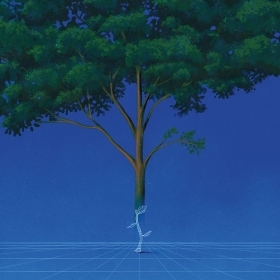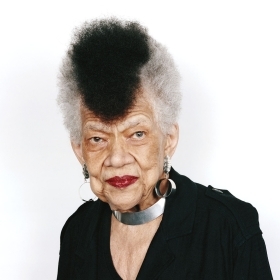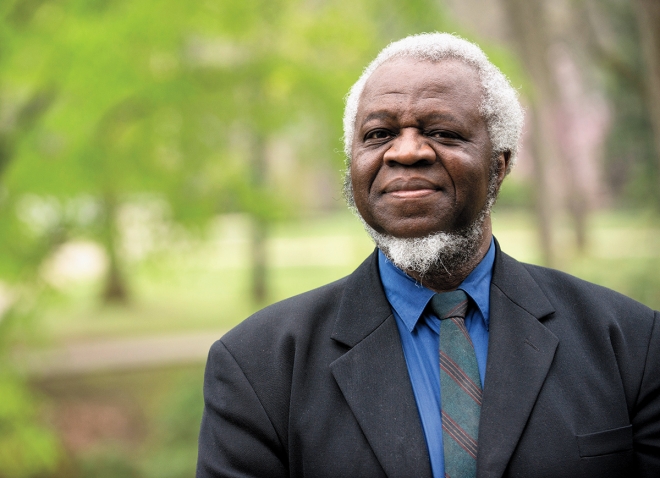Ifeanyi Menkiti, professor emeritus of philosophy, died on June 17. He liked to recall the old saying that philosophers bake no bread, but only to smile and disagree with it. He believed that philosophers could bake bread and should: that philosophical thinking should make a difference in everyone’s life, even at routine and ordinary moments. In his teaching, scholarship, and poetry, in his rescue of the Grolier Bookshop in Cambridge, Mass., and in his friendships with students and colleagues—all marked by wisdom, humility, a fierce sense of justice, delight in human company, a skeptical reverence for tradition, and measured good hope for the human prospect—Ifeanyi achieved exactly that.
Ifeanyi was born in 1940 in Onitsha, Nigeria, in a region once known as Biafra, a site, from 1967 to 1970, of a tragic civil war. He came to the United States in 1961 to study at Pomona College. His 1974 Harvard dissertation was a study of collective responsibility—an early expression of a lifelong concern with the moral commerce between individuals and their communities.
Ifeanyi arrived at Wellesley in 1973. Philosophy has been taught at the College for nearly 150 years; during that time, no one did more than Ifeanyi to enrich its philosophical curriculum. He introduced new courses in African philosophy, medical ethics, philosophy of law, and philosophy and literature. In his course on social philosophy, he gave other forms of community life the sustained attention that philosophers usually reserve for governments and states.
Plato spoke of an ancient quarrel between philosophy and poetry. In Ifeanyi, philosopher and poet were united. The great theme of his scholarship was the interaction between persons and the groups that enfold and define them. In a groundbreaking 1984 paper, “Person and Community in African Traditional Thought,” Ifeanyi set the agenda for a generation of writers on African social and political philosophy. (In 2018, Filosofia Theoretica, a distinguished journal of African philosophy and culture, devoted an entire issue to Ifeanyi’s work and influence.) Descartes, Ifeanyi argues, was not entirely wrong to announce “I think, therefore I am,” but his truth was a partial one. It would be wiser to say, “I am, because we are.” Prominent among the philosophical themes pursued in his poetry is the human desire for transcendence—our hope of connecting with something larger and more abiding than even the most embracing community of the here and now. Sometimes Ifeanyi addresses this theme with humor, as when he contrasts “the is-ness of is in the material world” with “the ought-ness of ought in the noumenal” (Of Altair, the Bright Light, 2007). But no less characteristic is the poet’s final plea in “The Long Journeys” (Before a Common Soil, 2007):
Then accept these murmurs of man’s enduring
breath,
and forgive our first offendings, ye gods;
and when the lone light
flickers in the dying daylight,
preserve these untended nurslings;
preserve them and us;
before the tulips fold,
where night descends
and lights go out,
and spirits pall.
Kenneth Winkler, Kingman Brewster, Jr., Professor of Philosophy at Yale, was professor of philosophy at Wellesley from 1978 to 2007.





We ask that those who engage in Wellesley magazine's online community act with honesty, integrity, and respect. (Remember the honor code, alums?) We reserve the right to remove comments by impersonators or comments that are not civil and relevant to the subject at hand. By posting here, you are permitting Wellesley magazine to edit and republish your comment in all media. Please remember that all posts are public.